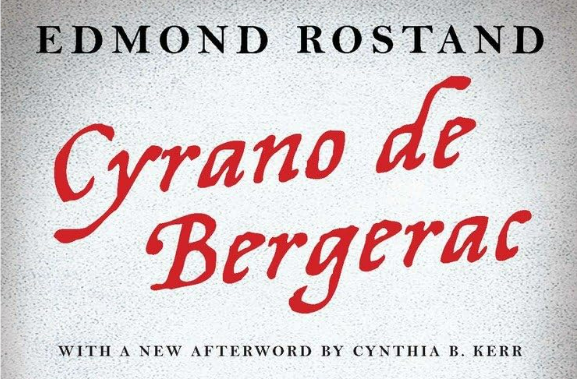Scene 3. IX.
byScene 3. IX. begins on a moonlit night in Paris, where Cyrano, Christian, and Roxane share a tender moment of emotion. Cyrano, ever the eloquent orator, guides Christian in his pursuit of Roxane, who watches from her balcony, distant and seemingly unattainable. The atmosphere is thick with anticipation as Christian, desperate for a kiss from the beautiful Roxane, pleads for Cyrano’s help. Although Cyrano harbors his own secret love for her, his resolve falters as the romantic scene unfolds before him.
As the friar leaves, following the directions given by Cyrano, the emotional tension heightens. Cyrano returns to Christian’s side, continuing their scheme to woo Roxane through poetic declarations and heartfelt entreaties in the cover of darkness. Christian’s longing for a kiss becomes the focal point of the scene, a poignant symbol of their increasing closeness, even though it is Cyrano who crafts the verses that fuel this romantic exchange.
Roxane reappears on her balcony, and Cyrano, through his impassioned words, transforms the conversation from playful banter into something deeply emotional. His poetic eloquence turns the notion of a kiss from a simple gesture into a profound expression of affection. Cyrano describes the kiss not as a mere physical act but as a culmination of the emotional connection between Christian and Roxane, a brief but powerful moment of intimacy under the quiet Parisian night sky.
In this pivotal scene, the contrast between Cyrano’s concealed feelings and Christian’s overt desire adds a layer of complexity to the narrative. Cyrano, hidden in the shadows, pours his heart into words that are not for him but for the man he is helping. His sacrifice is tragic: he helps another claim the love of the woman he secretly adores, demonstrating the depth of his selflessness and unspoken yearning.
The dialogue in this chapter beautifully captures the interplay of hope, longing, and unrequited love. Cyrano’s role is both that of the creator and the passive participant, as he orchestrates the emotional dance between Christian and Roxane while masking his own heartbreak. This scene encapsulates the essence of romantic tragedy, where love, sacrifice, and unacknowledged feelings intersect, creating a powerful narrative that speaks to the universal themes of love and loss.
The emotional stakes rise further when we realize that Cyrano, though instrumental in the romantic exchange, is a spectator to his own pain. His eloquence, meant to win the heart of the woman he loves, is channeled into helping Christian win her affections instead. This sets the stage for the larger thematic exploration of sacrifice and hidden desires that permeate the play, offering a poignant commentary on the complexities of love and selflessness.
Cyrano’s actions in this scene reflect a deep understanding of the human condition, where individuals often perform acts of great personal sacrifice for the sake of others. His contribution to the exchange between Christian and Roxane elevates the romantic encounter, transforming it into a profound moment of connection. The audience is left to reflect on the beauty of Cyrano’s selflessness, even as his own emotional needs remain unmet.
This scene also highlights the power of words, where Cyrano’s eloquence becomes the vehicle for both love and pain. Through his artful speech, Cyrano creates an environment in which Christian can express his feelings to Roxane, yet it is Cyrano’s heart that truly speaks. This masterful use of language underscores the complexity of human emotions, where words can both unite and divide, elevate and deceive.
As the chapter concludes, the emotional complexity deepens, making Cyrano’s situation all the more tragic. His willingness to help Christian, despite his own love for Roxane, underscores his noble character, yet it also reveals the painful cost of selflessness. This chapter exemplifies the tragic irony at the heart of Cyrano’s character, where his ability to articulate love only brings him closer to heartbreak and distance from the woman he adores.
Through Cyrano’s words and actions, this scene not only explores the themes of love, sacrifice, and hidden desire but also emphasizes the tragic beauty of unrequited love. Cyrano’s devotion to Roxane, despite knowing he can never claim her, offers a poignant commentary on the lengths one will go to for the ones they love, even when it means suffering in silence. His role in this exchange highlights the tension between personal sacrifice and the pursuit of happiness, a theme that resonates throughout the play and touches on the universal human experience of longing and loss.


